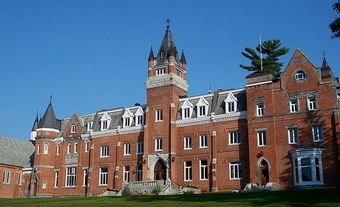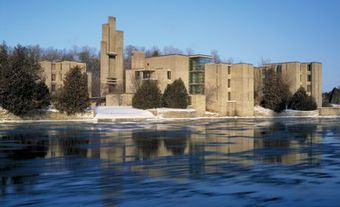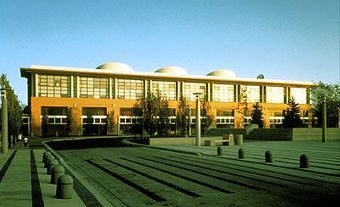Khaki University
Khaki University (initially Khaki College), an educational institution set up and managed by the Canadian Army in Britain, 1917-19 and 1945-46. The program was rooted in the study groups of the Canadian YMCA and the chaplain services of the Canadian Army. The planning and organization of the institution was the work of Dr Henry Marshall Tory, originating in a special report on discharged men from the army, which he wrote at the request of the National Council of the YMCA. In it he recommended that an educational institution be established in one central camp in England, to be called the Khaki College of Canada, with an extension department providing services for every other camp in Great Britain.
Tory, on leave as president of the University of Alberta, became president of the Khaki College in 1917. By that year, 19 centres of education had been organized in the camps and hospitals in England, with about 50 000 men taking courses - in such subjects as agriculture, business education, mechanics, teacher training, legal studies and medical instruction - through a scheme of popular lectures and the promotion of small study and reading groups. Supporting libraries were established and a uniform set of textbooks was approved by all Canadian provinces.
In 1918, the educational work of Khaki College became the educational services of Canadian forces overseas under the general staff of the Canadian Army. Khaki College claims an important place among Canadian educational institutions, and its concept became the forerunner of similar educational programs in the military forces of other countries. Apart from providing morale for demobilized personnel, the university provided many Canadians with an opportunity to continue their education.
See also Adult Education.

 Share on Facebook
Share on Facebook Share on X
Share on X Share by Email
Share by Email Share on Google Classroom
Share on Google Classroom


